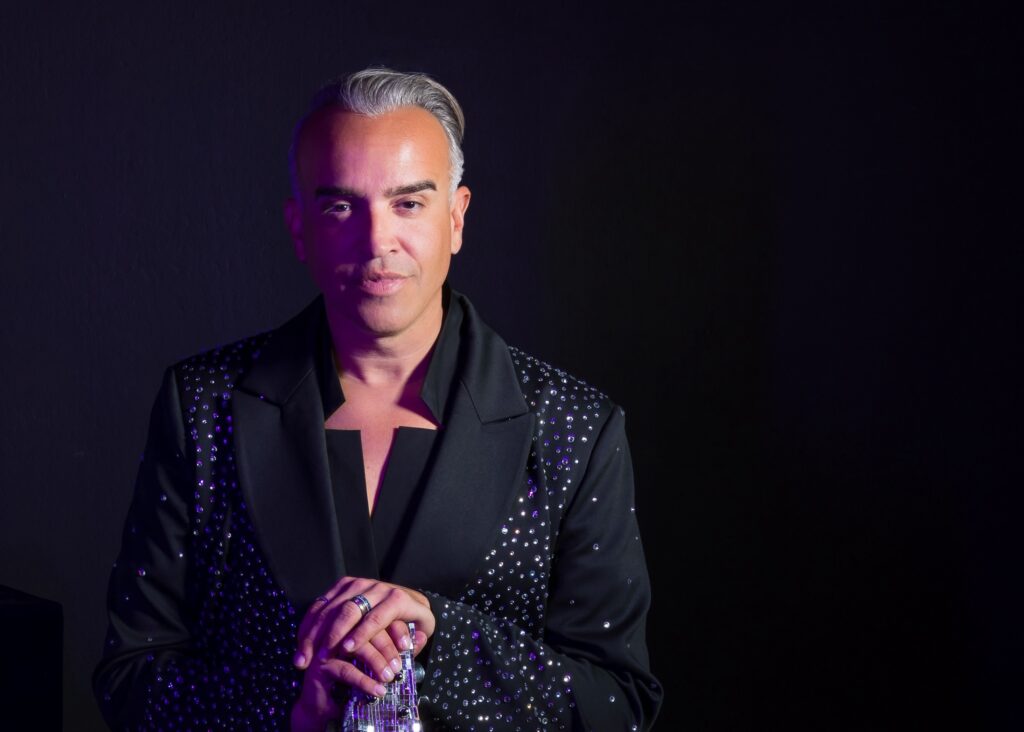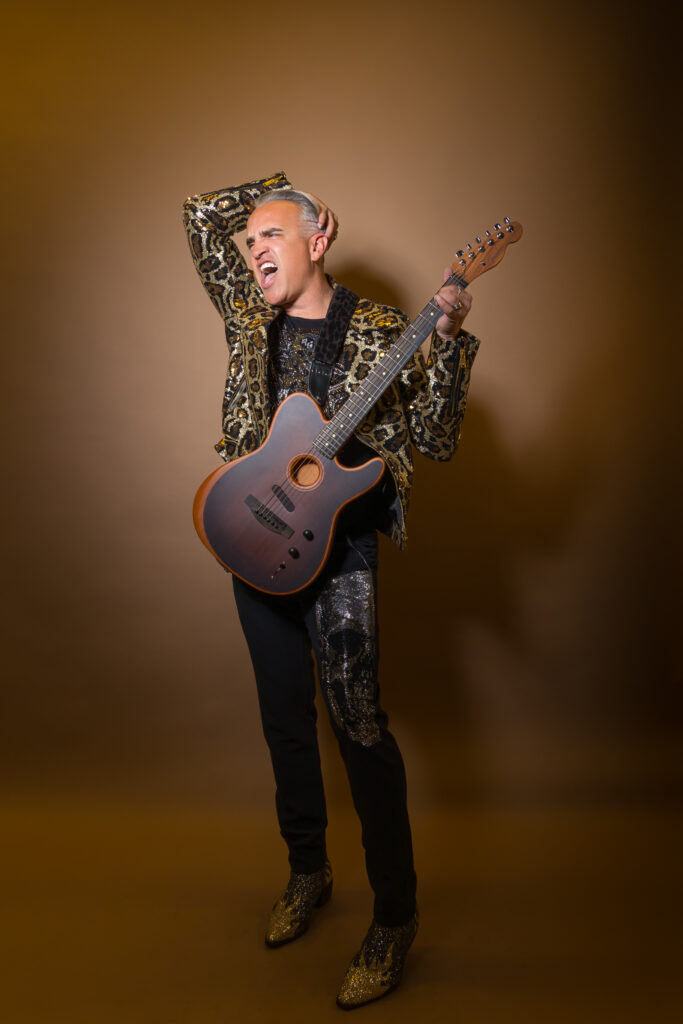
Roger Kuhn’s new album, Running with this Dream, is a melodic-house dance album that explores the joy and freedom of liberation and its connection with sex, love, expression, activism and even capitalism. Its title comes from a lyric in the opening song, “Come Alive,” where Roger sings about how the people in his life, particularly his husband and partner of 18 years, inspire him to spread his wings and reach for the stars.
Songs from Running with this Dream were written in Provincetown, Mykonos, Positano, Sitges, San Diego, Alabama, and New York.
“Touch” was written while he was on a cross country road trip driving from California to Maryland. “I believe I was in Indiana at the time,” he says. “I remember the sun was just coming up over the horizon and I was reflecting on what life could have been like had my father had overcome his alcoholism and not died in a drunk driving accident.”
Another song, “Ziggy,” was inspired by the book, Ziggy Stardust and Me, about two adolescent boys (one Caucasian, the other Native American) who fall in love and connect over their love of David Bowie. In its lyrics and melody, Kuhn imagines what the Native character would be like at his age now.
Then there is “The Future”, a melodic techno song that Roger counts as one of his favorites on the album. Roger released the video this weekend along with album.
“I wrote it while I was on my traditional homelands, the reservation of the Poarch Band of Creek Indians,” he explains. “After walking through the Wind Creek Casino, which my tribe owns, I was thinking about the impact that capitalism has played on Native, Two-Spirit, and LGBTQIA+ people.”
The song speaks to how if we do not honor the simplest truths in life, which he names as love, liberation, and empathy, we fall into the traps of capitalism and individualism which creates a sense of monotony and sameness in the world.
Roger Kuhn identifies as Two-Spirit. Coined by Dr. Myra Laramee of the Fisher River Cree Nation in 1990, Two-Spirit is used to signify male, female, and intersexed individuals who combine activities of both gender traits. In most tribes, they are considered neither men nor women; they occupy a distinct, alternative gender status.

Roger describes his gender as circular, meaning he is not on a fixed binary. It is the same with his sexuality. “Gender and sexual orientation can be seen through a kaleidoscopic lens,” he explains. “When you peer through a kaleidoscope you see multiples shapes, colors, expressions, and beauty, which is what life is like if we allow ourselves to see beyond the ordinary.” Kuhn sings about it in “Kaleidoscope,” a song he released earlier this year. It is included on the Running with this Dream album.
Roger Kuhn is touring the album this summer with stops in Boston, Rapid City, Fargo, Minneapolis, and more. Additional dates and cities, including New York, will be added soon.
Visit www.rogerkuhn.com

